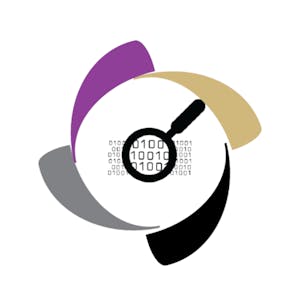Asymmetric Cryptography and Key Management
About this Course
Welcome to Asymmetric Cryptography and Key Management! In asymmetric cryptography or public-key cryptography, the sender and the receiver use a pair of public-private keys, as opposed to the same symmetric key, and therefore their cryptographic operations are asymmetric. This course will first review the principles of asymmetric cryptography and describe how the use of the pair of keys can provide different security properties. Then, we will study the popular asymmetric schemes in the RSA cipher algorithm and the Diffie-Hellman Key Exchange protocol and learn how and why they work to secure communications/access. Lastly, we will discuss the key distribution and management for both symmetric keys and public keys and describe the important concepts in public-key distribution such as public-key authority, digital certificate, and public-key infrastructure. This course also describes some mathematical concepts, e.g., prime factorization and discrete logarithm, which become the bases for the security of asymmetric primitives, and working knowledge of discrete mathematics will be helpful for taking this course; the Symmetric Cryptography course (recommended to be taken before this course) also discusses modulo arithmetic. This course is cross-listed and is a part of the two specializations, the Applied Cryptography specialization and the Introduction to Applied Cryptography specialization.Created by: University of Colorado System

Related Online Courses
This Specialization is envisioned for learners who wish to deepen their interest in the Korean language and culture or to expand their cross-cultural philosophical interests to Korean philosophy.... more
This course is designed for data analysts who want to learn about using BigQuery for their data analysis needs. Through a combination of videos, labs, and demos, we cover various topics that... more
This course focuses on the early stages of drug discovery and the identification of promising compounds with which to begin the hunt for a novel drug. Different types of assays and methods are... more
Faithful discipleship requires more than a good Sunday service. In this course series designed for pastors, ministry staff, and church volunteers, you will learn how to run your church faithfully... more
In this course taught by E. Michael Harrington, you will learn the basis for copyright including what is and is not covered by copyright law. This course will help clarify what rights artists have... more








